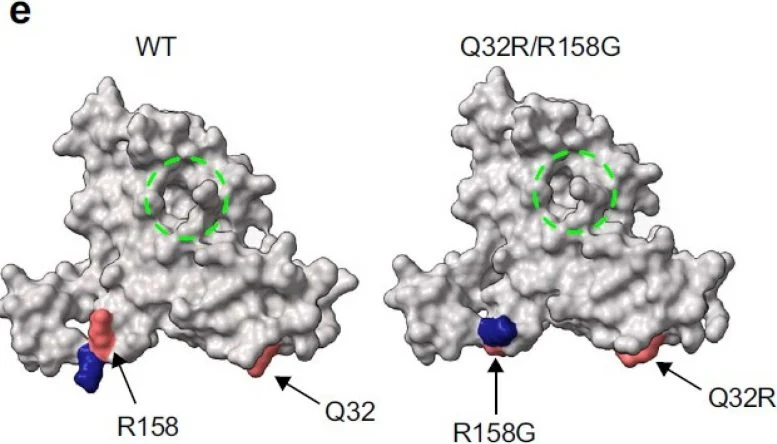PROTEUS Transforms Protein Engineering – in Human Cells
A new Biotechnology research platform developed in Australia is redefining the possibilities of Molecular Engineering by enabling the advanced, custom-designed proteins within Mammalian Cells. This Research has opened the door to therapies and medical tools previously beyond scientific reach.
A Leap Forward in Protein Engineering
Australian researchers, including those at the Charles Perkins Centre at the University of Sydney, have developed a new research system called PROTEUS (PROTein Evolution Using Selection), which enables researchers to evolve proteins with novel or enhanced functions within the very cells where they are intended to function. It builds on the method of directed evolution. This Nobel Prize-winning research technique mimics natural selection in the laboratory by introducing random Genetic Mutations and selecting for improved traits over consecutive cycles.
While directed evolution has traditionally been performed in bacterial systems, PROTEUS is engineered to work in Mammalian Cells, offering better and greater relevance for Human Biology. According to Professor Greg Neely, Head of the Dr. John and Anne Chong Lab for Functional Genomics at the University of Sydney, this advanced shift enables the development of molecular tools and therapeutics that are fine-tuned to function precisely in human physiological conditions.
The Rise of Cell-Based Intelligence
PROTEUS acts like a Biological version of Artificial Intelligence, capable of solving molecular problems by generating and refining millions of genetic sequences. While working with specific Biological challenges, such as reducing disease-related genes, the system rapidly evolves a range of molecular solutions to increase its performance and select the most effective gene.
Rather than depending on the trial-and-error method or slow manual experimentation, PROTEUS automates and accelerates the discovery of functional Biomolecules. It helps researchers to solve complex genetic problems in weeks instead of years
Real-World Applications in Medicine and Research
The potential applications of PROTein Evolution Using Selection are broad and impactful across Biotechnology, Medicine, and therapeutic development. The platform has already been used to:
Credit: Cole and Denes et al. PROTEUS has generated an improved version of a protein (right) that controls gene activity that can more easily be regulated by drugs. Mutated section in red and original version of the protein on the left.
- Create enhanced Regulatory Proteins that can be more easily controlled by Pharmaceutical compounds.
- Engineer nanobodies, compact antibody fragments that are capable of detecting DNA (Deoxyribonucleic) damage, which plays the main role in cancer development.
- Improve the accuracy and functionality of CRISPR gene-editing tools, paving the way for safer and more precise genetic therapies.
These early detections and the flexibility demonstrate the power of PROTEUS to address challenges in research areas such as Oncology, Regenerative Medicine, Genetic Disorders, and immunotherapy.
Solving the Challenge of Evolution in Mammalian Cells
One of the significant technical challenges addressed by the researchers was how to implement directed evolution in the complex and delicate environment of Mammalian cells. Unlike bacteria, mammalian cells are more delicate to genetic manipulation and can break down if exposed to an unstable or improperly regulated evolutionary process.
To overcome this, the researchers developed chimeric virus-like particles, engineered biological carriers built from components of two different virus families. These particles are used to deliver the evolving genetic material into cells without triggering stress responses or allowing the system to “cheat” by producing trivial or non-functional outcomes.
This hybrid viral design ensures that only high-performing molecular variants survive and propagate, while inferior solutions are eliminated, preserving the integrity of the evolutionary process.
Open-Source System for Global Research
The PROTEUS platform is being made open-source, allowing research scientist all around the world to integrate it into their research work. It has already been validated by independent laboratories, highlighting its robustness and adaptability.
As a plug-and-play system for protein evolution in mammalian cells, PROTEUS is expected to support a wide range of applications, including enzyme engineering, therapeutic protein development, and vaccine design.
Unlocking the Next Generation of Molecular Solutions
The introduction of PROTEUS marks a significant moment in the convergence of Synthetic Biology and Artificial Intelligence. It represents a new class of technologies that combine biological systems with computational principles, enabling faster, more innovative, and more targeted solutions to some of the most challenging problems in medicine.
By functioning as a dynamic, self-improving system inside living cells PROTEUS Transforms Protein Engineering, it offers a model for how future biotechnologies might evolve, literally and figuratively, toward personalized, responsive, and more effective treatments.
























